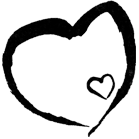Developmental movement therapy
Children love to move. Your child’s first learning comes through his relationship with you and his little world as he moves, senses and touches everything. Developmental movements of early childhood create primary neural pathways and networks that build your child’s mind and body.
Movement with purpose
Children are intrinsically motivated to fulfill their own development. You can foster every arena of your child’s development through movement, and fill in any gaps in milestones if your child has challenges or has skipped them. With a personalized home program, parents can create movement opportunities that support your child’s:
- Emerging sense of self – for grounded confidence
- Emotional & social intelligence – to create connection and compassion
- Learning readiness – to build attention asset vs attention deficit
- Physical integrity – of coordination, strength, and postural alignment
From the beginning
Learn the gentle, powerful early interventions that give your baby the best start. Begin with bonding and attachment, tummy time, rolling, coming in/out of sitting, then onto belly crawling and 4 legged crawling. These developmental movements foster formative well-being in your child’s mind. As adults we can return to underlying primary movement for more ease and freedom in function.
Fill in the gaps
Many children don’t fulfill their developmental movements in their first year. Toddlers visibly benefit as they bridge the gaps. You can awaken your child’s innate capacities, so that development can take off on its own.
Start where your child is
When a child experiences developmental delay or profound challenges, developmental movement therapy meets your child in her current capacity and paces activities to move development along, one baby step at a time.
Mindful parent/Mindful child
Mindful parenting fosters a mindful child. Play is the natural way of learning for all of us, children and adults. During play we experience a flowing sense of activity and time. In play we’re comfortable in our own skins, meeting the moment with curiosity and wonder. You bring it all together for your child. Your child’s love of movement can be a source of joy and insight into mindfulness as you parent your ever-changing child.
Bringing awareness to your own experience as you attend your child fosters a deep trust within each of you. Your child grows in confidence in his ability to engage with others and the world, while you grow in confidence in parenting. Understanding how movement supports development of the whole child, parents can rely on body-mind wisdom as you each grow through childhood and parenthood.
Powerful help when your child is challenged
The simple activities of reflex integration and developmental movement are rooted in neurodevelopment to support your child’s growing brain. You can learn how to create opportunities for your little one to fulfill all that she is capable of being.
Adoptive families
Connect with your child and support development that honors his personal history with its deep imprints of origin. You can help your child with bonding and attachment issues, as well as getting on track with early milestones. Seek proactive support for healthy development and early intervention for complex issues.
Play to learn our whole lives
Re-entering into simple developmental movements with curiosity and a sense of flow activates neural pathways for more freedom for choices in our adult lives. At any age we can return to early experiences that may have been skipped or were difficult. For example, if we had a difficult birth or many medical interventions, we may now have difficulty taking initiative ourselves, or stall out after starting a project. Having been restrained for hours in a car seat, a walker, in desk work at school and at the office may restrict how we use our selves. In somatic sessions you can explore any gaps in your own development, and find more freedom in both body and mind.
Ages served
Developmental movement therapy is available for infants, toddlers and adults. Phone consults and referrals are provided for older children.
What to expect in a developmental movement session



 Catherine has provided developmental movement therapy and education for over 20 years. She’s a Registered Somatic Movement Therapist and Infant Developmental Movement Educator in the lineage of Body-Mind Centering® with a core practice in mindfulness. Catherine draws on the potency of reflex integration from multiple perspectives.
Catherine has provided developmental movement therapy and education for over 20 years. She’s a Registered Somatic Movement Therapist and Infant Developmental Movement Educator in the lineage of Body-Mind Centering® with a core practice in mindfulness. Catherine draws on the potency of reflex integration from multiple perspectives.